Doctors strike over hard-to-swallow reform
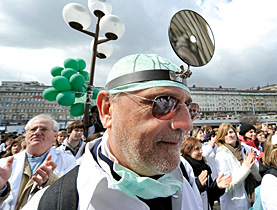
Hundreds of doctors in cantons Vaud and Geneva have hung up their stethoscopes for the day in protest over new laboratory tariffs and general working conditions.
General practitioners (GPs) contest a reduced laboratory tariff scheme designed to save SFr200 million ($177 million) imposed by federal authorities, which GPs say will reduce the quality of healthcare and further destabilise their profession.
More than 5,000 angry GPs, medical assistants, laboratory assistants and specialists marched in Lausanne and Geneva on Tuesday in protest. The one-day strike in western Switzerland is due to be followed by demonstrations across the country on April 1.
“It’s the first doctors’ strike in living memory,” Jean-Pierre Pavillon, president of the Vaud Medicine Society, told journalists in Lausanne. “The future of the profession had to be called into question for the doctors to take to the streets.”
Protestors say the new lower tariffs, due to be introduced on July 1, are not profitable and will cause GPs to lose money and slowly give up their own lab testing. This will lead to a weaker healthcare system and further damage the GP profession, which already has difficulty attracting new young doctors.
“We’re not fighting for our salaries, as we don’t make a living with the laboratory activities. We don’t want to lose this important working tool,” said Pavillon.
The measure imposed by the Federal Health Office, headed by Pascal Couchepin, risks leading to a greater number of external lab tests, delays, a long-term rise in health costs and avoidable hospital stays, the doctors claim.
Brandishing banners accusing Couchepin of being “irresponsible” and with slogans such as “GPs soon just a memory”, protestors in Lausanne handed over a petition signed by 41,000 people to the president of the Vaud parliament.
They hope the Vaud cantonal authorities can help persuade the Federal Health Office to review its decision on lab tariffs and open a public debate on the future of the Swiss health system.
Refuse to budge
Couchepin meanwhile has refused to budge over the lab issue and seems to be keeping a low profile while his officials defend the scheme.
“From the moment the test results can be obtained during a consultation, it’s obvious that there is a benefit to do them on the spot,” Peter Indra, deputy director of the Federal Health Office, told Le Temps newspaper.
But some GPs’ use of lab tests refunded by the health insurance scheme is exaggerated, he explained.
“Doctors are authorised to carry out 80 tests per surgery. We have observed that the insurance companies are reimbursing up to 1,000,” he said, adding that the new tariff is intended to discourage such abuses.
But doctors reject this accusation and add that it’s up to insurance companies to curb such excessive use.
Claude Ruey, president of Santésuisse, described the protestors as “a movement of bad-humoured people disorientated by the evolution of the current system”.
He told Swiss radio that it was important to allow GPs to continue to carry out lab tests at their surgeries but that the number should be limited.
“It’s hard to work out who to believe as their arguments differ so much,” said one Lausanne resident. “But one thing is true. My GP works 80 hours a week, covers for colleagues and the salary differences between specialists and GPs are obvious.”
Final straw
GP discontent goes much deeper than simple laboratory tests. Doctors criticise what they see as an increasingly arrogant, authoritative attitude by Couchepin and his department.
“The question of laboratories is the final straw among our members,” explained Jacques de Heller, president of the Swiss Medical Association.
“But the problem is much wider. It concerns the health minister’s communication and his way of talking to doctors. This decision concerning the labs was done while completely disregarding the elements available: the studies, statistics or our own proposals. Everything was ignored. That’s not the way to build a durable health system.”
Federal efforts to rationalise rising health costs are viewed suspiciously by the medical profession, especially GPs, who are undergoing an identity crisis and a progressive erosion of salaries.
Between 1971 and 2005 the average GP salary fell in real terms by 37 per cent to around SFr170,000, before tax and charges are deducted.
Initiatives
As a result, a growing number of young doctors prefer to become specialists rather than generalists, attracted by the more attractive working conditions, in particular higher salaries and fewer hours.
“Here in Vaud we know that 50 per cent of GPs are over 55 and in ten years we need to replace them – we’re just not training enough GPs,” blood specialist Jean-Philippe Grob told swissinfo.
A new national tariff system in 2004 has failed to give the intended boost to the profession. At the same time a 2002 moratorium blocking new GP surgeries remains in place.
Yet a number of initiatives are underway to attract new blood. Basel, Lausanne and Zurich universities have opened institutes focusing on GP training, for example.
Ultimately health officials have to stop making the profession less interesting, said Grob.
“If you are in your office and you have no lab or radiology, and you just have your hands and your stethoscope and your job is just deciding where you send your patients, this is no longer attractive,” he said.
swissinfo, Simon Bradley in Lausanne
Switzerland has compulsory health insurance coverage, giving access to a broad range of medical services.
It also has the most expensive health system in Europe, according to an international comparison.
Switzerland spent 11.5% on health in 2005, ahead of Germany and France but behind the United States. The average for OECD countries is 8.8%.
In 2005 the Swiss spent some SFr51.7 billion ($45.7 billion) on health.
About SFr7.5 billion went towards patient care, particularly for the elderly, of which 60% is paid by insurance, 20% by the state and 20% by individual patients.
The increase in health costs in Switzerland is above the average rate in other industrialised countries. 1990-2002: 2.4%; 2000-2005: 4.1%.
Around 428,000 people worked in Switzerland’s health sector in 2005. One in four was an immigrant.
The number of doctor’s practices has been on the increase since the 1990s and reached 2.08 per 1,000 inhabitants in 2006

In compliance with the JTI standards
More: SWI swissinfo.ch certified by the Journalism Trust Initiative

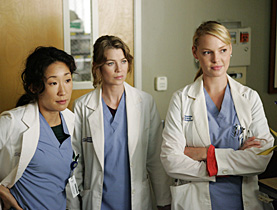
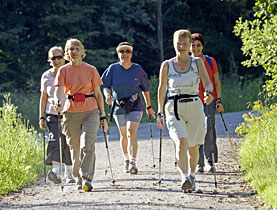
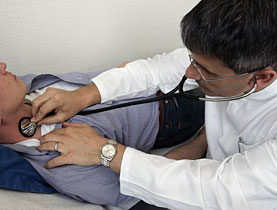
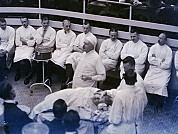
You can find an overview of ongoing debates with our journalists here. Please join us!
If you want to start a conversation about a topic raised in this article or want to report factual errors, email us at english@swissinfo.ch.